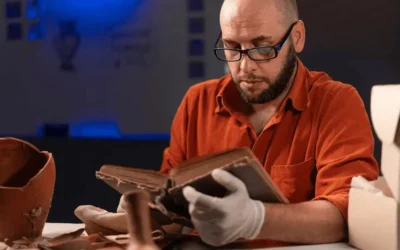Managing Expectations for Archival Projects: Tips for Archives Project Managers
Margot Note
Delivering a project on time, on budget, and with quality doesn’t always mean it’s successful. And even if expectations of cost and speed are met—or were unrealistic—stakeholders are the final judges of the project. In their eyes, the project may be late, over budget, or inferior quality.
Differing perceptions may seem unfair, but the good news is, miscommunication is preventable. Recognizing that the feelings of others define a project’s success is an incentive to make sure that all stakeholders agree on the basics. Setting realistic expectations with the project’s stakeholders is essential. Make sure to deliver the promised project, on time, and within budget.
Clarifying Mutual Expectations
One of the first tips for archives project managers is to ensure that stakeholders will believe a project is successful. Archives project managers must continually manage expectations because it keeps hopes in line with the project’s goals, objectives, and requirements. Otherwise, a stakeholder’s definition of success will differ from the team’s. As a result, the project will be a failure in their eyes even if it follows the project management plan.
One of the most beneficial (yet often neglected) activities in archival projects is clarifying mutual expectations with stakeholders. For instance, stakeholders expect project managers to:
- Understand their business needs
- Appreciate their priorities for cost, time, and scope of the project
- Be capable of looking at the project from their perspective
- Keep them informed of progress and changes
Archives project managers expect stakeholders to:
- Speak about their needs, not solutions
- Articulate requirements in the process as early as possible
- Supply information necessary to do the job
- Minimize changes to the project
Many people assume they’ll know what the other parties are going to do, how they’ll behave, and what they’ll deliver. When expectations are unclear, it results in rework, poor relationships, misunderstandings, and dissatisfaction.
Be Curious
Another tip for archives project managers is to discover what stakeholders expect by meeting with them individually. Since this is time-consuming, limit meetings to the most important stakeholders. If there are differences between what’s expected and what’s anticipated, archives project managers should resolve those differences as soon as possible.
Conversely, project managers can also express what’s anticipated from stakeholders. However, some project managers have trouble expressing their expectations to members of management. Bear in mind that stating expectations doesn’t mean that project managers are telling them what to do or how to act. If project managers express themselves correctly, it should be a description of support needed rather than a prescription for behavior.
What to Expect from Team Members
The archives project manager’s assumptions and responses to questions and situations set the tone for the project. In addition, team members come to the project with assumptions and needs of their own. When setting up the team, it’s essential to identify such expectations and to ensure that the team focuses on the same objectives and has the same expectations about the project.
Agree upon rules for communication between team members and with senior management, functional groups, users, and other employees. There should also be expectations for behavior, especially about how to handle conflicts and disagreements within the team. Team members should also agree on expectations for the percentage of available work time that each person will devote to the project, the relationship of the project to other priorities, and the hierarchy within the team.
Establish the team’s performance objectives as they relate to project requirements and expected benefits—which comprise the success criteria for assessing archives project outcomes. Examples of these performance objectives include deadlines that must be met and quality standards for the products of the archival project.
Exceed Expectation and Deliver Excellence
Managing expectations within the team leads to better team building. It’s ideal to have the team determine their rules, since they best understand their individual needs. For example, they can agree on the start and stop times for workdays or when documents should be made available for review before meetings. The pursuit of a common approach includes how to debate and establish expectations for what each person brings to the working environment.
Margot Note
Margot Note is an author, archivist, and records manager who helps individuals and organizations harness their history. See more of Margot’s posts on successful archival projects. Margot writes for Lucidea, whose digital archiving solutions help archivists improve accessibility and preservation of important archives.
Similar Posts
Texas Archive of the Moving Image: Interview with the Digital Archivist
I recently interviewed Grace Muñoz about her work at the Texas Archive of the Moving Image. Her work on improving the discoverability of the multimedia collection is fascinating.
How to Conduct Comprehensive Archival Surveys
Conducting a comprehensive archival survey is critical to successfully managing archival collections.
Remembering History, Moving Forward Together, with ArchivEra
The Catholic Diocese of Arlington’s Director of Archives selected ArchivEra to manage their collections of historical and cultural significance, and strike a balance between security and access.
Unveiling Archival Impact
The transformative power of storytelling depends upon the strategic choices that top archival performers make and the shift from being record-keepers to change agents.




Leave a Comment
Comments are reviewed and must adhere to our comments policy.
0 Comments